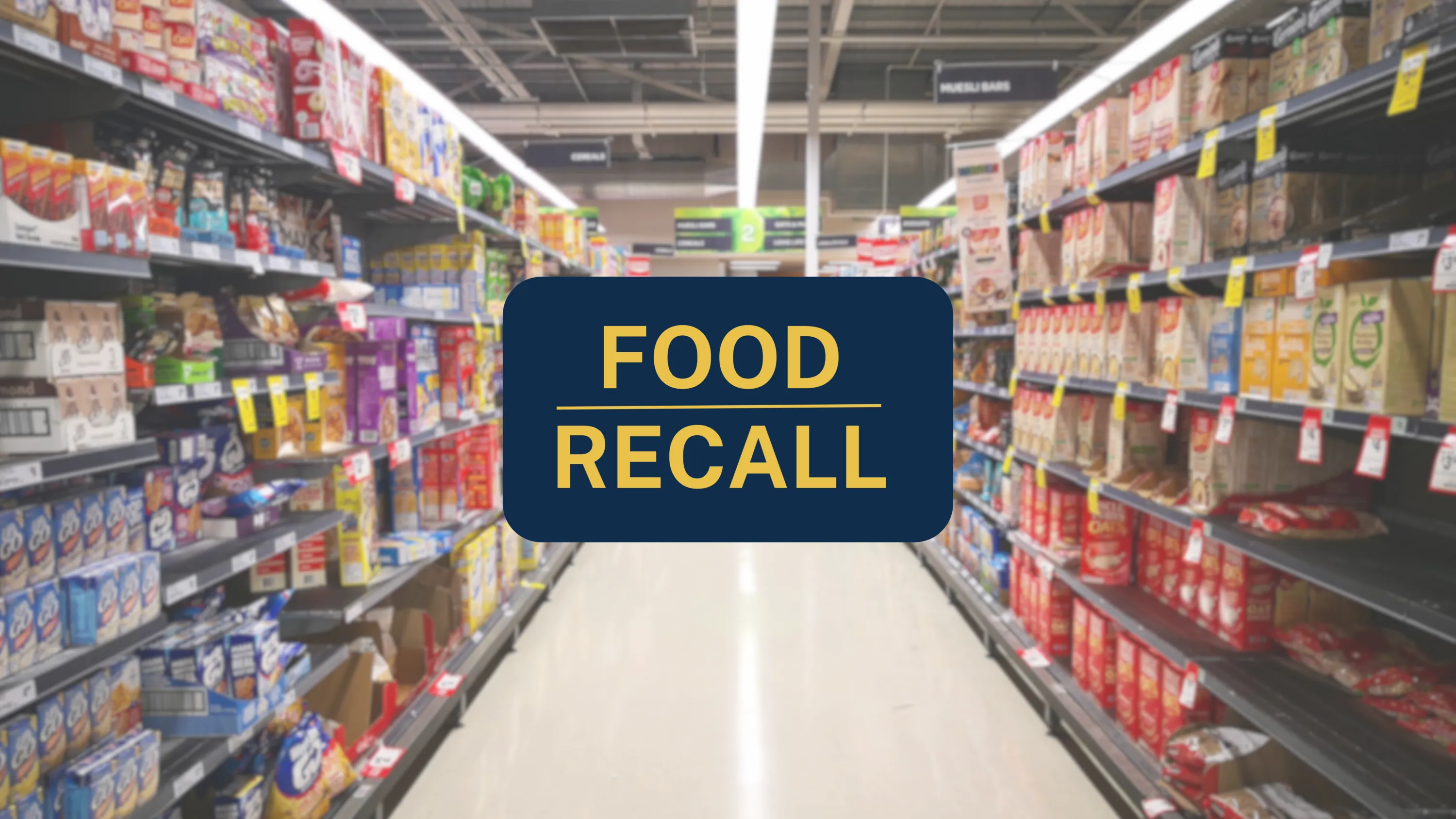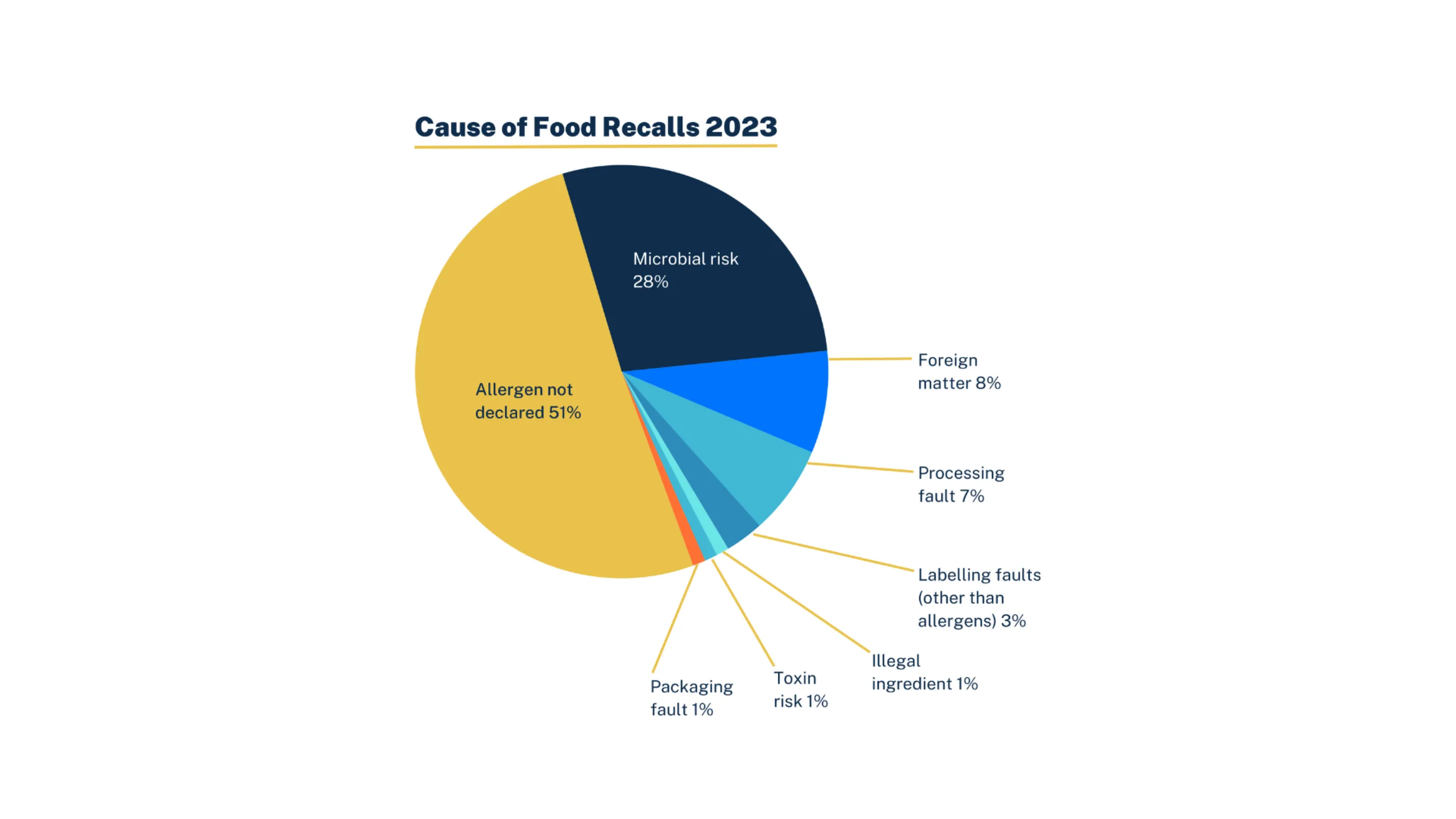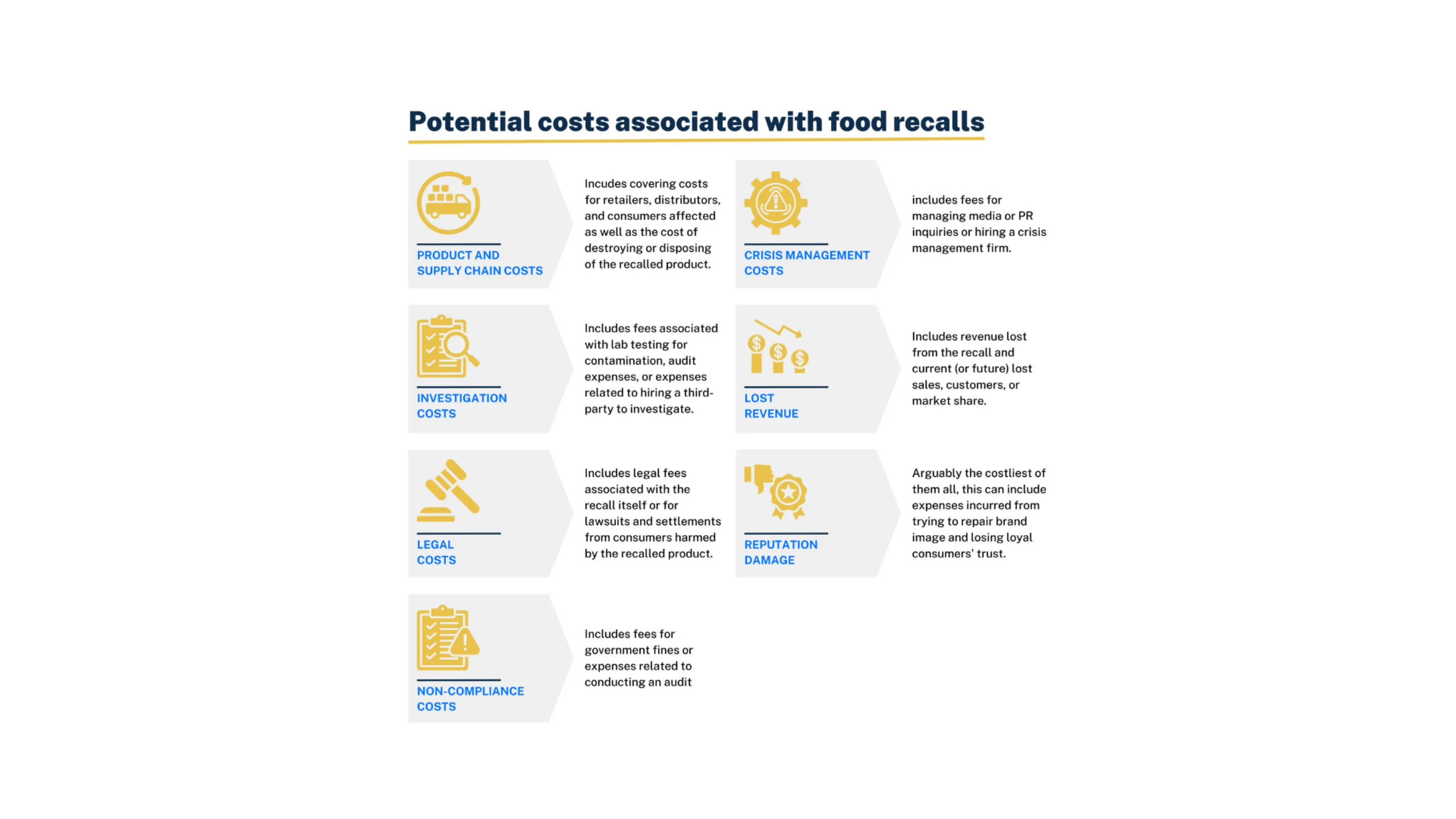JASANZ Accreditation Mitigates Food Recall Risks and Protects Consumer Safety
- Author: Kim Leighton, JASANZ Sector Manager Food & Biologicals and Katherine Appleby, JASANZ Marketing and Communications Coordinator
With food recalls posing significant costs to Australian businesses, the question isn’t just how to handle them – but how to prevent them. Accredited food safety certification offers a strong solution.
In the ten years from 1 January 2014 to 31 December 2023, there were 703 consumer level food recalls in Australia, an average of 70 recalls per year. The annual number of recalls has shown an upward trend over the past decade. In 2023, there were 75 food recalls in Australia, and as of 1 September 2024, there have been 57 recalls in 2024.
The causes of food recalls are classified into different categories, including microbial contamination, labelling errors, packaging faults, processing failure, foreign matter, undeclared allergens, biotoxins, and chemical or other contaminants. The presence of undeclared allergens is, by far, the greatest cause of food recalls in the past ten years and accounted for 51% of food recalls in 2023 (see Figure 1).
Figure 1. Cause of Food Recalls 2023
Under Consumer Protection Law, a consumer level recall (of packaged food sold to consumers) is mandatory when a food item is found to be unsafe. Food recalls are conducted because the food poses a serious risk to consumers’ health and, in some instances, may result in injury or death. The total cost of a food recall in Australia can range from hundreds of thousands to millions of dollars, depending on the scale and severity of the recall and the size of the food business. Long-term costs can be even greater due to the impact on brand reputation and consumer trust (see Figure 2 for a list of potential costs). A person or business knowingly permitting the sale of unsafe food may also be prosecuted, which can result in jail for the business operator. However, the impact of food recalls can also be felt by business employees and the wider community in which the business operates.
Figure 2. Potential costs associated with food recalls
Does JASANZ accredited certification help reduce the risk of food recalls?
Currently, JASANZ has accredited 11 certification bodies auditing in Australia for both the ISO 22000 and GFSI benchmarked food safety schemes, which include Brand Reputation through Compliance Global Standard (BRCGS), Safe Quality Food (SQF), Freshcare, GlobalG.A.P. and International Food Standard (IFS). These 11 certification bodies have issued 4,348 certificates. In 2023, there were 75 food recalls in Australia. Of these, just 20 were conducted by a certified food business, representing just 0.5% of the 4,348 certificates issued and less than one-third of the food recalls in the period. From this, we can conclude that accredited certification does help reduce the risk of food recalls. Let’s examine why.
How JASANZ accredited certification reduces the risk of food recalls
Most food businesses are certified, either because it is mandatory or because they opt to do so to ensure their products comply with food safety standards and to increase trade opportunities (given that supermarket chains and food retailers are increasingly demanding this from their suppliers). These food businesses may be certified to a recognised food safety scheme that is internationally benchmarked by the Global Food Safety Initiative (GFSI).
These third-party certification bodies send their Food Safety Auditors to undertake an in-depth evaluation of the food business’s performance. The Auditors examine a range of items, from management and organisational culture to record-keeping, staff training, operational procedures, and the Hazard Analysis and Critical Control Point (HACCP) food safety program, as well as how the business manages food recalls and avoids food fraud.
While audits are only a snapshot in time, the depth and rigour of the audit provide a strong indication of the ongoing capability of the business to consistently produce safe food and respond rapidly to any issues when required. Food Safety Auditors also identify where businesses need to improve their operations due to noncompliance with the food safety scheme requirements, and if found to have significant failures, may suspend or withdraw the certification to the scheme.
As an accreditation body, JASANZ provides the final piece of the puzzle in ensuring the confidence and reliability of the food supply chain through accredited food safety certification of food businesses.
JASANZ evaluates the effectiveness of food safety schemes to deliver on their intended outcomes, including food safety systems, minimising waste, verifying food authenticity and traceability, encouraging sustainability and environmental responsibility, and more.
Accreditation for certification bodies is often not mandatory, but many seek accreditation to demonstrate an independent confirmation of their competence to meet international standards for the requirements of certification bodies in undertaking conformity assessment. JASANZ accreditation helps to:
- determine the technical competency of Food Safety Auditors and ensure their ongoing training,
- improve the certification body’s management system, and
- ensure the impartiality of certification decisions, avoiding conflicts of interest.
The benefits of accredited certification
From the farm to manufacturers and to supply chain distribution, the benefits of using an accredited certification body include:
- De-risking procurement by taking the guesswork out of choosing a certification body, giving food businesses confidence that they will get the service that best meets their requirements.
- Winning new business, particularly since accredited conformity assessment services are increasingly a stipulation in both the public and private sectors (and are increasingly demanded from supermarket chains and food retailers).
- Gaining access to overseas markets since certificates issued by JASANZ accredited certification bodies are recognised and accepted globally, as JASANZ is a signatory to the IAF/ILAC Multilateral Agreement (MLA).
- Helping to identify best practice since the certification body must have appropriate knowledge of the food sector.
- Controlling costs with the help of knowledge transfer, since JASANZ accredited certification bodies can be a good source of impartial advice.
- Offer market differentiation and leadership by demonstrating credible evidence of good practice.
- Demonstrate due diligence in the event of legal action.
- Reducing paperwork and increasing efficiency by reducing the necessity to re-audit your business.
In addition to the above, JASANZ provides publicly available information on the status of accredited certification bodies and the businesses they certify through our online register.
Food businesses operating under an independently audited food safety scheme are more likely to have a well-managed production system. If a problem occurs, they are in a strong position to respond rapidly to conduct a food recall and protect consumers. Certified food businesses are also required to inform the certification body and the food scheme owner of the recall, who will evaluate the cause of the recall and whether the business’s responses will prevent such an incident from occurring in the future was adequate. A Certification Body may conduct a follow-up audit to verify that an effective root cause analysis was undertaken the true cause of the food recall has been identified with appropriate measures implemented to prevent such re-occurrence.
JASANZ accredited certification is pivotal in enhancing food safety standards, reducing the risk of costly recalls, and safeguarding public health. By ensuring certification bodies’ technical competence and impartiality, JASANZ supports food businesses in maintaining rigorous compliance with internationally recognised food safety protocols. This not only helps to prevent food recalls but also builds consumer trust, opens market opportunities, and strengthens brand reputation. For food businesses seeking to minimise risk and maximise operational efficiency, choosing a JASANZ accredited certification body is a strategic investment in their future success.




